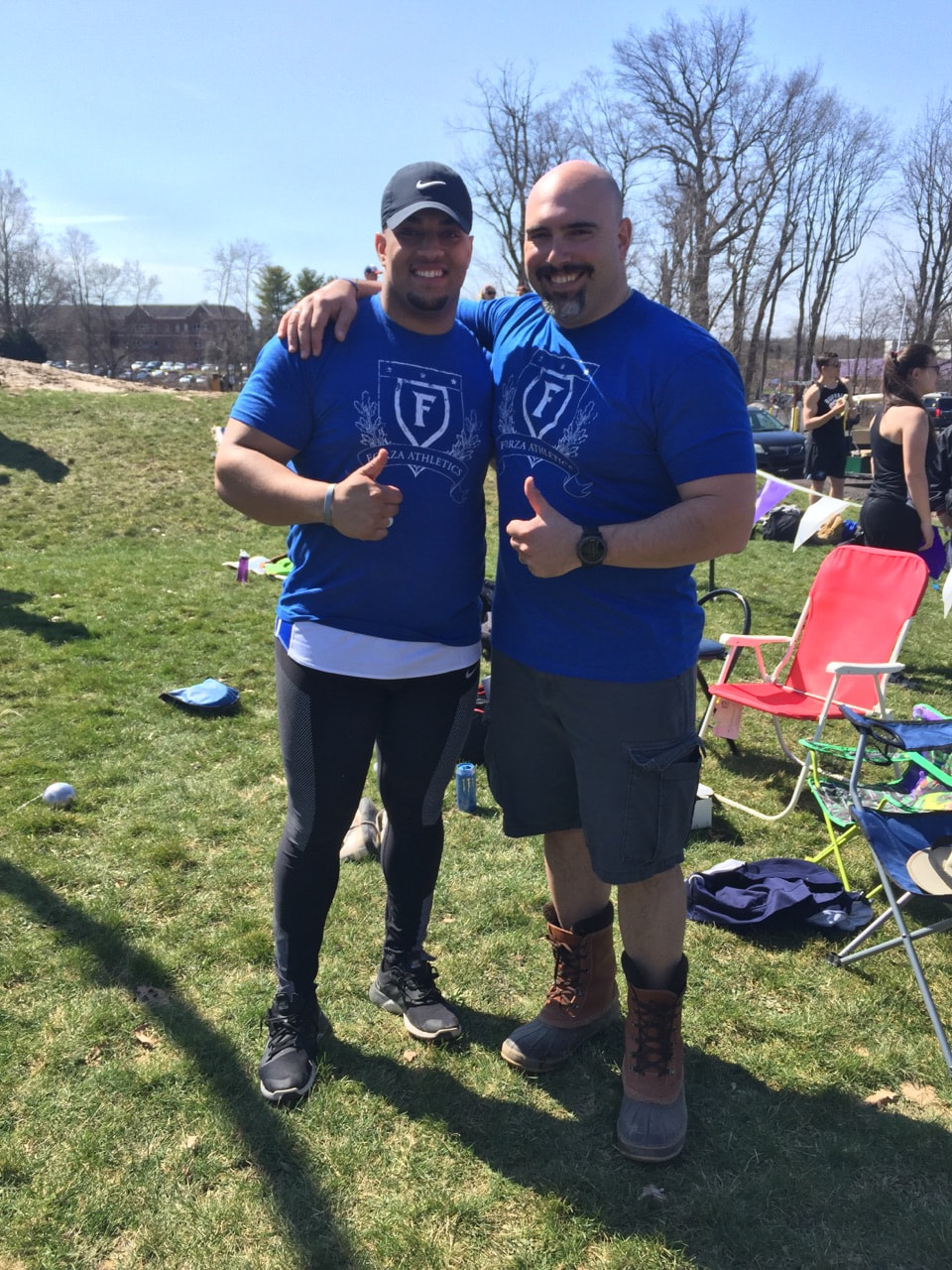|
The other day I posted a question on Instagram about podcast episode ideas friends in the coaching community had. I received two great questions from a graduate assistant throwing coach in the Mid-West. Her first question was about making the transition to post-collegiate throwing. Her second question was about strategies targeted towards throwers ensuring they stay on-track and accountable to their commitments (time management ideas). I recorded the first podcast about making the transition to post-collegiate throwing. You can listen to that episode by clicking HERE. I’ve written about the topic a couple of times, but I haven’t revisited the topic in a couple of years. Since then, some of my ideas about what is most important in making the transition to post-collegiate throwing have changed. I still advocate what I wrote a couple of years ago. You can read that blog post by clicking HERE. In that post from a couple of years ago, I discussed four traits that I thought then and still think today are important when making the transition to post-collegiate throwing. Two years ago I wrote about:
You can learn more about Grit by clicking HERE and HERE. I wrote about Grit in the past when I met Dan Chambliss and Angela Duckworth when she spoke at Hamilton College a couple of years ago. If you are interested in taking Angela’s grit assessment, you can click HERE. I go into more detail in my podcast episode about finding a support system. You can listen to our latest episode by clicking HERE. I also share those details below. Deliberate practice is an interesting concept. Many researchers have spent their entire careers studying the concept and how it has been applied to education, business, the medical field, music, and the arts. You can click HERE to learn more about deliberate practice and some of the leading researchers in the field. Finally, I spoke about how athletes need to be able to self-assess their progress, reflect, make the necessary adjustments, and continue moving forward towards their goals. I think it is difficult for athletes to self-assess and reflect upon where they started, where they currently are, and how what they have done has either moved them closer to achieving their goals or not. In all honesty, this is taking a look at the reflection in the mirror and coming to terms with whether you as the athlete/individual has done everything they can to move themselves forward towards achieving their goal(s). When it comes down to it, there is only one person that can be held accountable for that success or not, and that is the person staring back at you! Building upon these four concepts, I’ve added a couple of new beliefs about what is important to make the successful transition to post-collegiate throwing.
First, why are you making the transition to post-collegiate throwing… Your vision and where you want to ultimately end up will dictate how committed or interested you really are in continuing with your throwing journey. If you want to continue throwing as a hobby, then you probably don’t need to dedicate a lot of time to it, suggesting that you are just interested in throwing. However, if you are making the transition to continue throwing after college because you want to qualify for a World Championship or Olympic team, then you are committed. Understanding why you have chosen this journey will make the difference in where you go. If you were a collegiate athlete that was an All-American or National Champion, maybe you want to continue throwing because you feel as though you haven’t reached your full potential yet. Maybe you feel you have more to prove. You feel as though you haven’t reached your peak, and that continuing on with your throwing journey will help you realize a goal you have for yourself. Figuring out your why and purpose will make your decision to continue as a post-collegiate thrower. Second, what sacrifices are you willing to make in order to realize your dreams. This is an idea I encourage you to really think about. If you were the athlete that was on the cusp of becoming an All-American or National Champion at the collegiate level, but didn’t just quite make it, think about everything you went through to get to that point in your athletic career. If you don’t have a strong purpose as to why you want to continue on with the post-collegiate journey, you may find yourself surrounded by more obstacles than you initially anticipated. Think about it like this for a moment. In college, you had all the luxuries you may have ever wanted. You probably had access to a gym/training center. You had access to a sports medicine team. You probably also probably had access to all of the implements you would ever need to throw. You also had medical insurance provided by the college/university. You also probably had a coach. Now that you are a post-collegiate, you lose access to some of these amenities. If you transition to a career, you’ll need to think about how you will find balance between your career and throwing. This is where you’ll really need to think about how much you really want to achieve your post-collegiate goal(s). I was teaching full-time, enrolled in graduate school full-time, coaching, and trying to compete as a post-collegiate thrower. I put a lot of obstacles in front of myself. I somehow managed to throw over 10m farther as a post-collegiate from the time I graduated in 2004 and to when I hit my last personal best in 2008. I was not a collegiate All-American. I was barely the best thrower in my conference, but when I graduated I realized I had wasted so much time as a collegiate athlete that I wanted to see what I could achieve as a post-collegiate. I was determined to give myself an opportunity to qualify for the 2008 Olympic Trials. Even with all the life barriers around me, I thought I could make. Did I sacrifice a lot, not really. I was teaching full-time. I earned my graduated degree in one year. Reflecting back now, I probably didn’t think I was really ever going to throw 70m, so I had a back-up plan. I wanted to move to a different area to surround myself with other likeminded individuals, but I didn’t. I held back. Partly due to what my family would think. Partly due to the significant other I had at the time. But mostly because I was afraid. Making the sacrifice doesn’t mean that you need to move someplace, live in your car for a year, and only train. That may be a bit on the extreme side. Yet, you do hear of Olympic medal winners that moved to a certain location to train with a coach and did indeed live in their cars for an extended period of time. But in all honesty, you do need to think about what you are willing to give up in order to achieve your goal(s). Are you willing to move someplace to train with a coach or a particular training group? Are you willing to hold off on a career until you feel as though you’ve given yourself the best opportunity to be successful with your post-collegiate throwing? Are you willing to give up time spent with your family, friends, and significant other to travel to meets, complete training sessions, or go find a circle and throw? These are some of the initial questions I would ask myself if I was thinking about making the transition to post-collegiate throwing. Making these sacrifices doesn’t necessarily ensure you will accomplish your goal(s). Making these sacrifices may put you in a better position to reach them, but I think you also need a support system to do so. Third, do you have a support system around you that is nurturing, supportive, and understands why you are continuing with your post-collegiate throwing career? This may be the most important factor of all-certainly one of the most important factors when it comes to the mental aspects of throwing. Are you surrounded by individuals that are as interested in your success as you are? Do you have family and friends around you that support your goals and why you want to achieve them? Do you have friends that understand your travel schedule, training schedule, and throwing schedule? Do you have a significant other that supports you in this endeavor? Answering yes to these questions will make the transition easier. Speaking from experience, answering yes to most of these questions won’t always ensure your success, but it will give you the peace of mind to know that others in your circle understand why you are doing this and most importantly that they want you to achieve your goals as much as you want to achieve them for yourself. For anyone making the transition to post-collegiate throwing this year, I hope what I’ve discussed here brings you value and shines some light on what might otherwise be a murky endeavor. When you sit down and think about your purpose in post-collegiate throwing, ask yourself if you are committed or interested. Answering that question first will help all the puzzle pieces fall into place a little easier!
0 Comments
Leave a Reply. |
Dr. Charles InfurnaCharles Infurna, Ed.D., is the owner and lead coach of Forza Athletics Track Club. Dr. Infurna has coached National Record Holders, National Champions, All-Americans, and Conference Champions at the Post-Collegiate, Collegiate, and High School level. Archives
January 2023
Categories |


 RSS Feed
RSS Feed